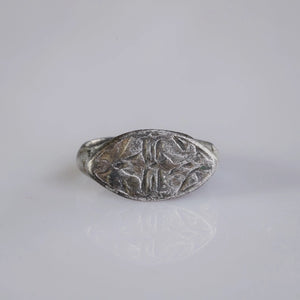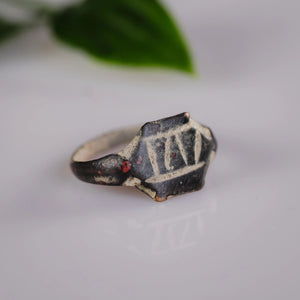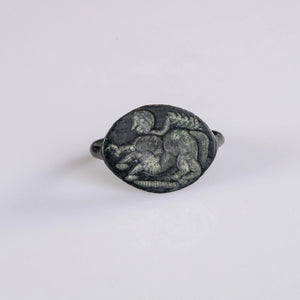Interesting facts
Introduction to Roman Imperial Ideology
When we look back at the vast and enduring power of the Roman Empire, it’s tempting to imagine it as simply the outcome of brute military force — legions marching across continents, swords flashing under the Mediterranean sun. Yet, beneath this overwhelming display of martial might lay a sophisticated and deeply ingrained political and social philosophy that made Roman dominance more than a fleeting conquest. This philosophy, known to scholars as Roman imperial ideology, was the invisible thread weaving together a sprawling empire of diverse peoples for centuries. It was not solely about soldiers winning battles but about cultivating a shared belief in the legitimacy of Rome’s rule, a consensus that mattered just as much — if not more — than any legion’s sword.
Legitimacy and Consensus: The Core of Roman Authority
Roman imperial ideology was fundamentally a construct centered on legitimacy and consensus. The Roman Empire didn’t hold its territories just because it defeated opponents on the battlefield; it held them because the people governed by Rome came to accept, in various degrees, the rightfulness of Roman authority. This acceptance was fostered through complex ceremonies, gifts and benefits bestowed upon provincial leaders, and the gradual integration of provincial societies into Roman administrative and cultural systems. These processes created a sense of inclusion, loyalty, and stability that military successes alone could not have guaranteed.
Consider for a moment how modern empires or governments seek legitimacy. They use elections, laws, media narratives, and public performances to convince their populations of their right to govern. Similarly, the Romans utilized an intricate blend of rituals, honors, and local accommodations, all carefully designed to feed a growing consensus that being under Rome’s rule was not just inevitable but also beneficial, even honorable. This was not uniform nor unchallenged — resistances and rebellions flared from time to time — but by and large, the strategy worked to keep a fractious, multi-ethnic empire held together. The idea of legitimacy was not just a matter of abstract political theory; it was lived and experienced in everyday reality by citizens and provincials alike.
Binding Traditions with Political Power
The notion of legitimacy in Roman imperial ideology is multifaceted. On the one hand, it rested on traditional Roman legal and political ideas about what made authority rightful. The Roman Republic had cultivated a strong sense of legalism — authority flowed from laws, recognized offices, and the will of the people (at least broadly defined as the patrician and later plebeian classes). When the Republic transformed into the Roman Empire, the emperor embodied this legalistic legitimacy as the supreme representative of Roman values and legacy. Emperors were often careful to portray themselves as restoring Republic virtues or acting in the Senate’s name, even when their power was effectively autocratic. This continuity smoothed the transition and kept alive the sense that Roman imperial rule was legal and right.
At the same time, legitimacy went beyond laws and formal titles. It was also deeply symbolic and emotional. Public ceremonies such as triumphs, religious rites, and festivals linked rulers and subjects in shared experiences that reinforced loyalty and collective identity. The emperor was often presented as a semi-divine figure or the “father” of the empire, fulfilling roles that extended well beyond mere governance. This blend of political authority and cultural identity embedded the empire’s legitimacy in daily life, making it palpable to people in far-flung provinces like Egypt, Gaul, or Britannia.
Integration and Stakeholding in Roman Provinces
The benefits Rome extended to its provinces were not just gifts; they were part of a calculated system of integration. Roads were built, cities founded or enlarged, local elites enrolled into Roman citizenship or political offices. These measures created stakeholders in the continuation of Roman rule. Provincial elites often embraced Roman culture, law, and language, finding prestige and advantage in this allegiance. This created a growing class of individuals who identified with Rome and whose fortunes depended on the empire’s stability. Loyalty was often a pragmatic choice, yes, but it also became woven into provincial identities across generations.
One might ask why consensus mattered so much to Rome. Why couldn’t sheer military dominance alone suffice? The answer lies in the scale and diversity of the empire itself. Rome governed tens of millions of people speaking many languages, practicing various religions, and following their own customs. To rule such a complex entity through force alone would require a constant and exhausting presence of armies, suppressing endless uprisings. Instead, consensus and perceived legitimacy reduced the need for coercion. It fostered internal peace, allowed for efficient administration, and freed resources for other endeavors, including further expansion or public works.
This interconnectedness among the provinces is crucial to understand, much like the interconnectedness within broad systems today, such as the European Union. The synergies and shared goals of such vast and diverse entities bring to mind the multiple influences and shared identities of Roman provinces unified under a common rule.
The Role of Culture in Imperial Ideology
A striking example of this blend of legitimacy and consensus is the way Rome adopted and adapted local deities and customs, integrating them into the imperial cult or giving them a Roman veneer. This inclusion sent a powerful message: local traditions were not obliterated but respected and incorporated. Thus, worship of the emperor alongside native gods reinforced the unifying power of imperial ideology, combining loyalty to Rome with pre-existing cultural identities.
This political and social ideology did not remain static over centuries. As the empire evolved, responding to new challenges, the expressions and rituals of legitimacy shifted as well. The emperor Diocletian, for instance, introduced more elaborate court ceremonies and a clearer hierarchy to emphasize imperial authority, while Constantine's endorsement of Christianity reshaped the ideological landscape of Rome, intertwining imperial power with a new religious unity. These adaptations underscored a key strength of Roman imperial ideology: its flexibility. It could absorb and reflect changes while still maintaining the underlying consensus about Rome’s rightful rule.
The Military and Ideological Symbiosis
The interplay of military power and ideological legitimacy is equally important. Roman legions were undeniably central to building and defending the empire, but the soldiers themselves were also participants in this ideology. Soldiers were granted land, citizenship, and pensions, tying their personal futures to the continuation of Roman rule. Their loyalty was cultivated not just through discipline but through inclusion and reward within the imperial system.
The very harmony of military might and political ideology is reflected in everyday products we see today, melding form and function, much like the crafted items from Roman times.
Modern Echoes of Roman Ideology
Interestingly, the legacy of this Roman imperial ideology echoes in many modern political concepts. The balance of force and legitimacy, the use of rituals and symbols to foster collective identity, and the incorporation of diverse groups under a common system all resonate through later empires and contemporary nation-states. Understanding Roman imperial ideology offers not just a window into ancient history but also insight into the enduring human challenge of governance and legitimacy.
One might even draw parallels with how voluntary consensus forms in social groups today. Think about how a community might accept a new leader — it’s rarely by brute force but through trust, shared values, and mutual benefit. Roman imperial ideology institutionalized this on an unprecedented scale, turning the sprawling Mediterranean world into a functioning entity held together by more than armies alone.
How did such an expansive empire manage internal conflicts while maintaining unity?
Essentially, the Roman Empire was like a huge quilt, each cultural thread carefully woven into the larger fabric, ensuring that any disturbance was absorbed without tearing the cloth. This meant encouraging local customs and granting certain autonomies, akin to today’s federal systems that provide regions or states certain degrees of self-governance while still under a central authority. That's why the empire could last as long as it did, adjusting and readjusting its governance tactics to fit the changing times and pressures.
This raises an interesting question: How did such an expansive empire manage internal conflicts while maintaining unity? Essentially, the Roman Empire was like a huge quilt, each cultural thread carefully woven into the larger fabric, ensuring that any disturbance was absorbed without tearing the cloth. This meant encouraging local customs and granting certain autonomies, akin to today’s federal systems that provide regions or states certain degrees of self-governance while still under a central authority. That's why the empire could last as long as it did, adjusting and readjusting its governance tactics to fit the changing times and pressures.
Engaging with the past can also be a tangible experience. Consider our 'Auriga' - Roman Silver Ring, a testament to the meticulous artistry of the ancient world. This piece is not just an artifact; it’s a doorway to history, allowing you to carry a piece of the Roman Empire with you. You can discover this masterpiece at auroraantiqua.store, where history and craftsmanship intertwine beautifully.

The Legacy of Roman Governance
The remarkable longevity of the Roman Empire stands as a testament to the success of this approach. While military conquest laid the groundwork, it was the shared belief in the empire’s legitimacy — nurtured through ritual, law, integration, and consensus — that cemented its cohesion. That is, Roman imperialism was as much a political ideology as a matter of arms.
In the complex mosaic of the empire’s provinces, where cultures and traditions varied wildly, the idea that Rome was a just and rightful ruler brought a fragile but enduring unity. Stability came not just from forts and borders but from an intangible sense that being Roman, or at least being part of Rome’s extended family, was a privilege worth embracing. This ideological bond enabled Rome to govern effectively for centuries, impacting billions of lives and leaving a legacy that resonates to this day.
Amid the elaborate ceremonies and political arrangements, there is a simple truth: power without legitimacy is brittle. Rome understood this deeply. The empire’s strength was never just weapons or wealth but the conviction held in the hearts and minds of its subjects that Roman rule was right. Without this belief, the empire would have crumbled long before history remembers it.
Such insight challenges us to reconsider how we think about power and governance even today. What binds societies together across difference and adversity? Often, it is shared stories, rituals, and the sense that leadership has genuine, accepted authority. Roman imperial ideology teaches us that this is no modern invention; it is a timeless human reality, elegantly and effectively practiced millennia ago. In that sense, the echo of Rome’s political genius still whispers to anyone who seeks to understand the subtle art of ruling far beyond mere conquest.
Unveil History's Elegance
Discover 'Auriga' RingConclusion
When exploring the vastness and endurance of the Roman Empire, understanding Roman imperial ideology unlocks not only the mechanics of a world power but also profound lessons about legitimacy, consensus, and the subtle ties that hold together human communities through time.
Article Ending
Roman imperial ideology was not just a backdrop to military and political events but a central pillar that made Roman imperialism sustainable and effective over centuries — a reminder that ruling an empire is as much about winning hearts as it is about winning wars.
What is Roman imperial ideology?
Roman imperial ideology was a set of beliefs and practices that legitimized and sustained Roman rule across diverse peoples and territories, emphasizing consensus, legality, and cultural integration.
How did Roman imperial ideology maintain stability in the empire?
The ideology fostered stability by cultivating a sense of legitimacy through rituals, law, and cultural integration, enhancing loyalty and reducing the need for coercion.
Is there a modern example reflecting Roman imperial ideology?
Modern states still reflect aspects of Roman ideology, balancing force with legitimacy and using cultural symbols to unify diverse populations. Discover more about this reflection in our 'Auriga' Roman Silver Ring.




